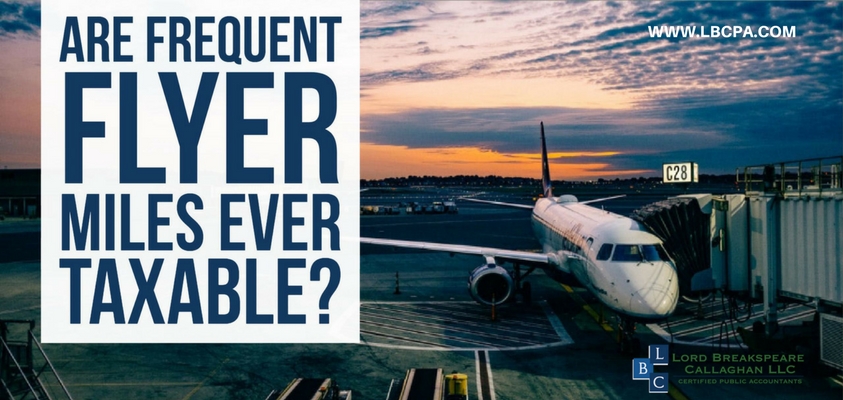LBCPA News 
Click here to go back
ARE FREQUENT FLYER MILES EVER TAXABLE?

If you recently redeemed frequent flyer miles to treat the family to a fun summer vacation or to take your spouse on a romantic getaway, you might assume that there are no tax implications involved. And you’re probably right — but there is a chance your miles could be taxable.
Generally, miles awarded by airlines for flying with them are considered nontaxable rebates, as are miles awarded for using a credit or debit card. The IRS even addressed the issue in Announcement 2002-18, where it said:
Consistent with prior practice, the IRS will not assert that any taxpayer has understated his federal tax liability by reason of the receipt or personal use of frequent flyer miles or other in-kind promotional benefits attributable to the taxpayer’s business or official travel.
There are, however, some types of miles awards the IRS might view as taxable. Examples include miles awarded as a prize in a sweepstakes and miles awarded as a promotion.
For instance, in the 2014 case of Shankar v. Commissioner, the U.S. Tax Court sided with the IRS in finding that airline miles awarded in conjunction with opening a bank account were indeed taxable. Part of the evidence of taxability was the fact that the bank had issued Forms 1099 MISC to customers who’d redeemed rewards points to buy airline tickets.
The value of the miles for tax purposes generally is their estimated retail value. If you’re concerned you’ve received miles awards that could be taxable, please contact us.
If you have any questions regarding accounting, domestic taxation, international taxation, IRS representation, U.S. tax implications of Real Estate transactions or financial statements, please give us a call at 305-274-5811.
Source: Thomson Reuters






